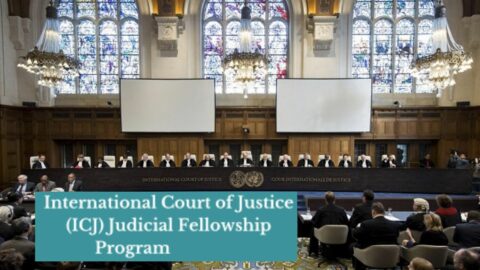Kofi Atta Annan (8 April 1938 – 18 August 2018) was a Ghanaian diplomat who served as the seventh secretary-general of the United Nations from 1997 to 2006. Annan and the UN were the co-recipients of the 2001 Nobel Peace Prize. He was the founder and chairman of the Kofi Annan Foundation, as well as chairman of The Elders, an international organisation founded by Nelson Mandela.
The African Union Commission (AUC) acts as the executive/administrative branch or secretariat of the African Union (and is somewhat analogous to the European Commission). It consists of a number of Commissioners dealing with different areas of policy. The African Union Headquarters are in Addis Ababa, Ethiopia.
The African Union Commission launched the Africa Centres for Disease Control and Prevention (Africa CDC) – Kofi Annan Global Health Leadership Programme on 25 May 2020 in partnership with the Kofi Annan Foundation, following its approval by the Governing Board of Africa CDC in March 2018.
Fellows admitted in the programme are senior public health professionals from African Union Member States who will contribute to and lead the implementation of a new public health order for Africa, and in turn mentor and develop the next generation of public health leaders for the continent.
As they reflect on the remarkable progress of the Kofi Annan Fellowship in Global Health Leadership Programme, having graduated 39 Fellows from over 20 AU Member States and currently training 20 more from 14 Member States, they have witnessed the tangible impact of this visionary initiative. The programme’s alumni have not only honed their leadership qualities but are also actively shaping the future of healthcare across Africa. With some leading national programmes, others are replicating leadership programmes in their institutions, and some have taken up Government Ministerial positions, the ripple effect of this leadership program is undeniable.
Benefits
- Africa CDC will provide all learning and development materials
and meet all costs associated with the fellowship, including travel,
daily allowance and insurance during the residential placements. - Fellows will be supported to ensure that they have the relevant
software for online learning.
Eligibilities
Applicants for the Fellowship must:
- be citizens of an African Union Member State;
- possess a postgraduate degree in a relevant field in public health;
- have 10 years of professional experience in any field of
public health, including but not limited to one health, human medicine, finance, health economics, health policy, animal health, or environmental health; - be in full-time employment in any area of public health,
- in public or private institution in Africa;
- have a good track record or be able to demonstrate the potential for effective public health leadership where
they can positively impact the public health outcomes of populations in Africa.
Application Process
All applications must be submitted using the online application form. Incomplete applications will not be considered. All
applicants must provide the following required information:
- A support letter from the current employer to confirm employment, guaranteeing that the candidate will be allowed enough time to participate in the Fellowship programme and to attend the full eight weeks of institutional residential experience.
- Letters of recommendation from two reputable professional referees.
- A personal statement (maximum 400 words) providing
evidence of the candidate’s commitment to public health in Africa detailing the following:
– Their leadership experience and professional attainment
– Their vision of, and the future impact of effective public health leadership in Africa
– How they would champion public health initiatives in Africa - A leadership challenge project proposal (maximum 400 words) that outlines a potential leadership challenge
project they will implement which is feasible to complete with in the 12 month of the fellowship. The proposal should include a title, brief description of the challenge (the what, the who is affected, and the why), a proposed strategy for a solution, and the expected outcome. - Completed applications with all supporting documents
should be submitted through https://impact.africa-cdc.org/form/kafghlp-4.
** Incomplete applications and
applications sent over email will not be considered.
Application Deadline: January 30, 2024
Application ClosedOfficial link










